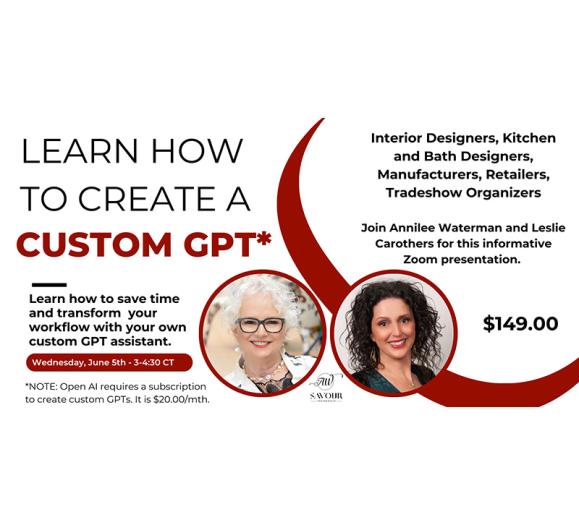Nothing is more important than your interior design business growth. You’ve got to invest your time in the tasks and actions, in your practice, that will deliver the greatest impact. There are seven deadly distractions that plague interior designers whether just starting out or established for 10 to 20 years. Read the list here and see if you’re guilty of any of these. It’s time to stop doing what doesn't move your business forward and start doing what will.
The litmus test for knowing if you should stop doing a task or activity is simple. You only want to do a) what you love, b) what you’re really good at, c) what you can do time effectively. If all three don’t apply, outsource it. If you don’t outsource it, you’re playing to your weaknesses and that’s a big hairy waste of time. Stop it!
#1 Drafting
Drafting isn’t designing; it’s a vehicle to communicate your designs and it’s a piece that can be readily outsourced online today. You don’t need to build a big team, hire employees and support extensive overhead to handle large projects. You need to get smart about outsourcing to support your interior design business growth.
If you don’t love to draft, aren’t really good at it and aren’t fast it, outsource it. Investing in new software and the learning curve it requires isn’t a wise use of your time. Outsourcing it is.

#2 Rendering
First, you have to decide if rendering is something you want to offer. While clients often clamor for it (too much HGTV), it can inhibit your opportunities for spontaneous design changes and furnishing, artwork and accessory additions or changes.
If you do offer it, do not rush out for the latest software and dive into a challenging learning curve. Outsource it. Quality photo-realistic rendering is available for as little as $150/room (not a typo) and can climb into thousands of dollars if you’re working on a multi-million dollar project.
#3 Website Design & Maintenance
You’re an INTERIOR (yes, I am shouting) designer, that doesn’t mean you have a talent or skillset for web design or the technical know-how for maintaining your site. Most designers don’t, even with Squarespace and Wix.
If you’re serious about your interior design business growth, please outsource this. And I don’t mean to your cousin, your neighbor’s teenager or your son, I mean to a professional with a track record of quality interior design websites, including basic SEO. (If you don’t know what SEO is, you really don’t need to be touching your website design and maintenance.)
#4 Bookkeeping (and Accounting)
When I opened my doors for business many years ago, I had a bookkeeper and accountant, both already on board. While I know how to do reconciliations, I have no desire to do them. I’m a creative and so are you. We love to invest our time creatively, not doing the numbers. You can’t ignore the numbers either; it’s the fast path to broke.
When you’re committed to your interior design business growth, you outsource your bookkeeping and accounting early on. And this applies whether you’re using Quickbooks, Ivy, My Doma Studio, Designer Advantage, Studio Designer or any other accounting software.
#5 Sourcing
“Whoa, Melissa,” you’re saying, “I can’t outsource my sourcing.” Oh yes you can and here’s how to do it. First of all you’ll never outsource all of it because there are pieces of it you truly love. For me it’s fabrics, furniture, rugs, artwork and accessories, I love, love, love all of those. Did you notice what’s missing?
I don’t love sourcing for finish materials (tile, hardwood, granite), and I don’t love hardware and sometimes lighting can send me round the bend, particularly if it’s the flush mount, vanity lighting, and recessed variety. So, I contact my key suppliers who rep multiple lines and I tell them what I’m looking for, how much I need, the project deadline, and what I’m planning to invest. I set them up for success so they can deliver 3-5 options and save me the time and angst of having to search for hours and days through thousands of options.
You can do the same thing with furnishings, fabric, artwork, rugs, and even accessories. Your reps know their lines inside and out, allow them to find you the best options in far less time and you can stipulate that it must be in stock, so they verify BEFORE sending it over for you to review.
#6 Recurrent Monthly Subscription Payments
When you’re focused on your interior design business growth, you don’t want to be derailed but surprise monies coming out of your accounts each month. You also don’t want to fall prey to the trap of signing up for a tool, a software, or a resource because it looks cool, failing to ever explore it properly and start using it, and find yourself paying for it for the year!
If you don’t really need a particular tool, software or resource (and this applies to training programs too) then don’t invest period. If you do really need it then pay for it upfront and get the savings. You’ll often save from 20%-30% by paying in full upfront, that adds up to a spa day, a long weekend away, dinner with your family and a whole lot more.
#7 The Competition
What you focus on expands, so when you focus on your competition (and we all have competition), you are helping them grow. If instead, you focus on your interior design business growth, you’ll grow! Stop the comparison game, it’s a vicious trap that will leave you feeling behind and inadequate every time.
Run your own race, and let them run theirs. You have gifts and talents they don’t have, they have gifts and talents you don’t have. Get over it, get on with it.
If you’re tired of dealing with the distractions detailed here and ready to truly commit to your interior design business growth, schedule a complimentary Design Business Diagnostic Session here with me. I’ve worked with designers for over 15 years to ditch the distractions that stall growth and implement proven strategy and action plans that create momentum and results.









